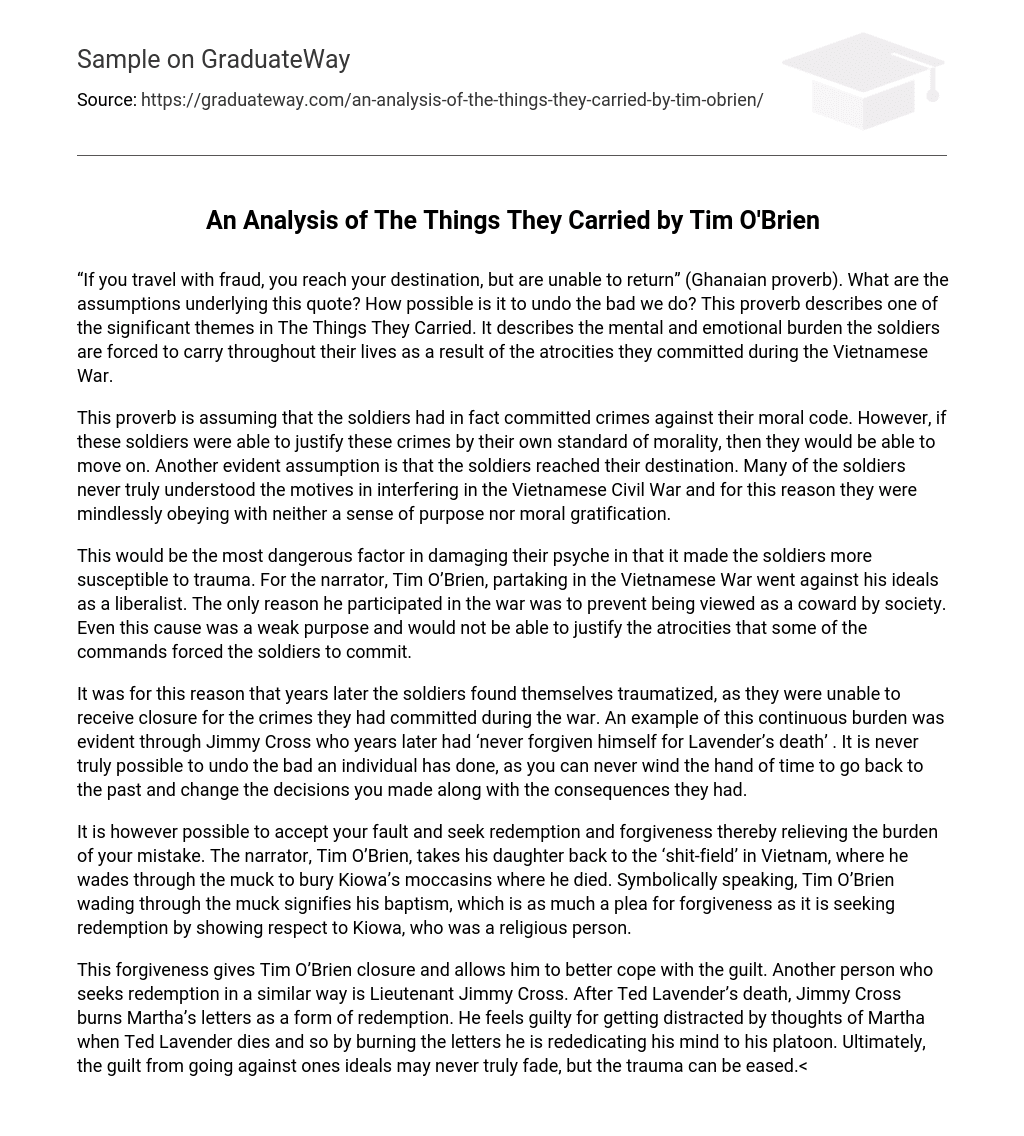According to a Ghanaian proverb, if we engage in deceitful actions while traveling, we may reach our intended destination but will be unable to return. This quote raises questions about the assumptions made about the consequences of our actions and the possibility of undoing the harm we cause. In The Things They Carried, this proverb highlights a prominent theme – the enduring mental and emotional weight carried by soldiers due to the horrific acts committed during the Vietnam War.
This proverb assumes that the soldiers had indeed violated their moral code. However, if these soldiers could rationalize these actions according to their own moral compass, they would be able to move forward. Another assumption is that the soldiers successfully reached their intended destination. Numerous soldiers failed to comprehend the reasons behind intervening in the Vietnamese Civil War, resulting in mindless obedience without a sense of purpose or moral satisfaction.
This factor greatly endangers their mental well-being as it heightens the soldiers’ susceptibility to trauma. Tim O’Brien, the narrator, faced a conflict of values due to his liberalist views conflicting with his participation in the Vietnam War. He reluctantly joined the war to evade societal judgment of cowardice, but even this weak motive failed to justify the cruel actions imposed on the soldiers by their superiors.
Many years later, the soldiers experienced ongoing trauma due to their inability to find resolution for the atrocities they had committed in war. This continued burden is evident in Jimmy Cross, who remained unable to forgive himself for the role he played in causing Lavender’s death. The act of undoing one’s past wrongdoings proves impossible, as time cannot be reversed to change decisions and their subsequent consequences.
It is possible to accept your fault, seek redemption, and find forgiveness, thus relieving the burden of your mistake. Tim O’Brien, the narrator, brings his daughter to the Vietnam ‘shit-field’ where he wades through the muck to bury Kiowa’s moccasins at the location of his death. Symbolically, Tim O’Brien wading through the muck represents his baptism—an act seeking forgiveness and redemption while honoring Kiowa’s religious nature.
Tim O’Brien finds closure and improves his ability to handle guilt through forgiveness. Lieutenant Jimmy Cross also seeks redemption, following a similar path. After the death of Ted Lavender, Jimmy Cross burn Martha’s letters as a way to redeem himself. He blames himself for thinking about Martha and being distracted when Ted Lavender died. Burning the letters is a way for him to refocus his mind on his platoon. Although the guilt of betraying one’s morals may never completely disappear, the healing process can be facilitated.





